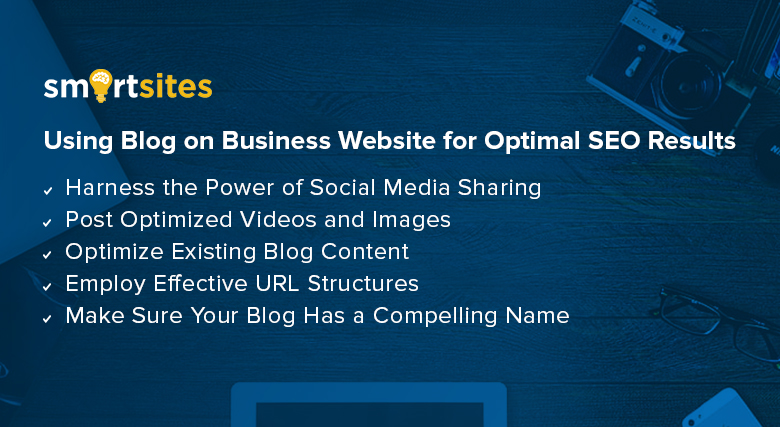How To Improve SEO Results With Your Blog

Chad Faith
Director of Content

Having a business blog has become a necessity for many companies these days. Unfortunately, not every organization knows how to make the most of their blog content, to improve their SEO results. If you are looking to improve organic site traffic and visibility via your blog, you have come to the right place. Let’s find out more!

Harness the Power of Social Media Sharing
Some of the benefits that come with sharing one’s blog posts on social media accounts include:
- Gaining social links that help increase referral traffic
- Keeping one’s target audience engaged
- Keeping one’s social media accounts relevant and current
These benefits are possible to gain because social signals are included in ranking algorithms, thus improving SEO results. When you are just starting out, try writing a couple of sentences explaining the purpose of your post. It is important to include keywords you are targeting as well.
Post Optimized Videos and Images
Remember to include videos and images in your blog posts because they can help increase visitor engagement and create a positive experience. When you optimize them with high-priority keyword phrases and descriptive alt tags, you can gain incremental SEO value as well. Don’t you think it is time to start reviewing your YouTube page again? If you have video content that could enhance one of your blog posts, be sure to put them to good use!
Optimize Existing Blog Content
In some cases, you can use existing website content to improve SEO results. You just need to discover additional opportunities and optimize existing posts from there. Here a few optimization techniques you can try out:
- Ensure that targeted keywords are included in meta descriptions and title tags
- Link related posts together
- Add and/or optimize images
- Add internal links to other relevant pages within your site
If you are lacking blog posts, you can consider creating new content to fill SEO gaps. This means finding out if your site lacks content related to certain SEO words and phrases you want to rank for. Leveraging existing blog content can certainly save you time and resources. When you write a blog post, you need to make sure it is written for a specific segment of your target audience. For example, if you sell marketing consultation services, one of your posts should talk about a hot topic in the industry. For example, paid search advertising or mobile marketing.
Employ Effective URL Structures
The correct URL structure can make results easier to report. Hence, it is important to use user-friendly URLs. Some businesses fail to include “/blog” in their URL syntax, even if their blog is running on their main website domain. This syntax exclusion can make it challenging to track the overall progress of the blog within analytics. Next, you do not need to include conjunctions such as “or,” “but,” and “and” within your URLs. So, instead of something like:
Go for a shorter and more optimized URL like:
Make Sure Your Blog has a Compelling Name
It is good to be more descriptive and creative when it comes to naming your blog. Blog names are also an optimization opportunity, so ask yourself the following questions:
- Who are you trying to reach?
- Can you incorporate vital keywords in your blog’s name and title?
- What makes a compelling description in your industry?
- Is there an overarching theme of the blog? If yes, what would that be?
 Free
Consultation
Free
Consultation Free
Google Ads Audit
Free
Google Ads Audit







